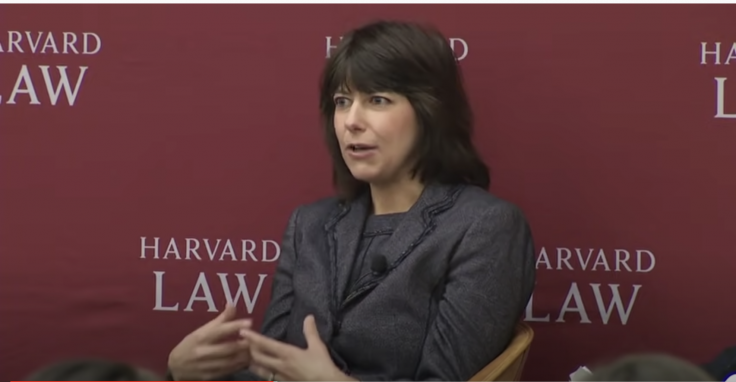President Joe Biden's pick to represent his administration before the Supreme Court was given a pass during her Tuesday confirmation hearing on a $10,000 payment that may require her to recuse herself from a landmark challenge to Harvard's affirmative action program.
The Washington Free Beacon reported in August that Harvard Law School paid solicitor general nominee Elizabeth Prelogar over $10,000 between 2019 and 2020 for teaching and unspecified consulting services, a transaction that seemingly necessitates her recusal from a landmark challenge to the university's affirmative action program now pending before the High Court. Prelogar has yet to address the apparent conflict in public, but lawmakers didn't press her about it Tuesday.
The High Court in June asked the Biden administration to weigh in on whether it should hear an appeal from Asian students who allege Harvard's race-conscious admissions practices are biased against them. The solicitor general's office will prepare that legal brief and is certain to participate in the case if the justices decide to hear it.
Biden issued an executive order on his first day in office that requires executive branch personnel to step back from matters involving former employers and clients for two years, effective the day of their appointment. According to a financial disclosure obtained by the Free Beacon, Prelogar taught and consulted at Harvard in 2019 and 2020, which means she is subject to the order's requirements. White House officials can waive the cooling-off period if they determine the public interest requires it.
Apart from the Harvard case, Sen. Tom Cotton (R., Ark.) pressed Prelogar about her decision to flip positions in the criminal sentencing case, Terry v. United States. The question in that case was whether the First Step Act made low-level crack cocaine offenders eligible for reduced sentences.
The Trump Justice Department argued that it did not. Prelogar switched sides at the last minute and backed the offenders. In an opinion for eight justices, Justice Clarence Thomas said the offenders weren't eligible for changed sentences, and he called the result a "straightforward" one. Justice Sonia Sotomayor wrote separately to say that the law required the outcome, though she urged Congress to amend the statute.
Prelogar told Cotton she was not ordered to flip positions, but she declined to say whether she consulted with top Justice Department officials about the case. Some speculated that the reversal was the result of political pressure from the White House.
"I was the acting solicitor general at that time and I was responsible for all of our litigation positions," Prelogar said.
Cotton was one of just two Republicans who questioned Prelogar. Only a couple of senators stuck around for Prelogar's appearance, which immediately followed a confirmation hearing for two circuit court nominees, Beth Robinson and Jennifer Sung. Most senators left the chamber after the Robinson-Sung hearing, which was significantly more contentious.
The Biden administration is off to an uneven start in the Supreme Court. At Prelogar's direction, the Justice Department flipped its litigating position and blundered into a 9-0 defeat in a criminal sentencing case in June. And the Court in August rebuffed the department's attempts to maintain a moratorium on evictions and repeal the Trump-era "Remain in Mexico" policy for asylum seekers, though Prelogar had left the office by that time because of her nomination. She served as the acting solicitor general from January until early August, when she was officially nominated for the post. She's now on leave from the Justice Department pending confirmation.
If confirmed, Prelogar will set the administration's legal strategy for the coming Supreme Court term, which includes major cases on abortion, gun rights, and public funding for religious schools.
